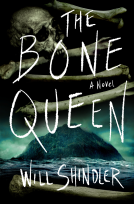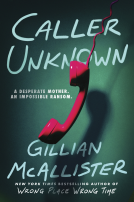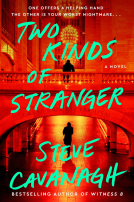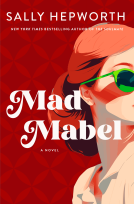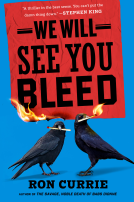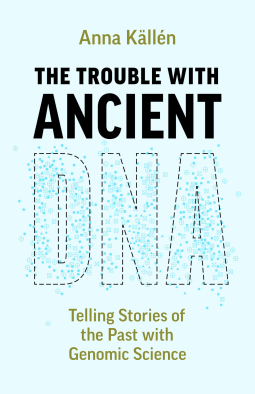
The Trouble with Ancient DNA
Telling Stories of the Past with Genomic Science
by Anna Källén
This title was previously available on NetGalley and is now archived.
Send NetGalley books directly to your Kindle or Kindle app
1
To read on a Kindle or Kindle app, please add kindle@netgalley.com as an approved email address to receive files in your Amazon account. Click here for step-by-step instructions.
2
Also find your Kindle email address within your Amazon account, and enter it here.
Pub Date Jan 20 2025 | Archive Date Dec 18 2024
Talking about this book? Use #TroublewithAncientDNA #NetGalley. More hashtag tips!
Description
In recent years, discoveries brought to light through analysis of ancient DNA—or aDNA—have made headlines around the world. While ancient DNA studies may appear to focus on laboratory science and objective results, the findings have also relied heavily on storytelling and can be influenced by political interests.
In The Trouble with Ancient DNA, Anna Källén explores how the parameters of genetic science influence the stories we tell about our ancient ancestors, questioning what narratives we can and should take at face value. Through accounts of migrations, warriors, and figures like Cheddar Man, we see enticing and potent narratives that reach far beyond what can be gathered from the scientific study of molecules alone. Rather, by privileging certain narratives and questions—like those about sex or eye and skin color—our stories of ancient DNA are spun around the structure of today’s methodologies, technologies, and popular and political interests. Källén considers how DNA is used to sensationalize stories, how its use poses questions of ethics and care, and who is responsible if stories of ancient DNA are adopted for dangerous political projects.
Available Editions
| EDITION | Other Format |
| ISBN | 9780226835570 |
| PRICE | $20.00 (USD) |
| PAGES | 160 |
Available on NetGalley
Average rating from 14 members
Featured Reviews
This book is a critique of our growing obsession with DNA as the ultimate key to the past. Bridging the gap between geneticists and historians, Källén skillfully exposes how easily ancient DNA findings can be oversimplified, misrepresented, and sensationalized. With clear explanations, she challenges the notion that DNA alone can tell us everything about our history and identity.
Källén’s insights remind us that while DNA is a powerful tool, it is not a magical answer to the complexities of the human story. The Trouble with Ancient DNA is a must-read for anyone fascinated by the intersections of science, history, and identity.
 J. K, Reviewer
J. K, Reviewer
Thanks to the publisher and Netgalley for this eARC.
The Trouble with Ancient DNA: Telling Stories of the Past with Genomic Science by Anna Källén is a thought-provoking exploration of how genomic science shapes our understanding of history. Källén, an expert in archaeology and ancient studies, delves into the complexities and ethical considerations of interpreting ancient DNA (aDNA) findings.
The book examines how scientific discoveries are often intertwined with storytelling, influenced by contemporary methodologies, technologies, and even political interests. Källén’s narrative is both insightful and critical, questioning the narratives we construct about our ancestors based on genetic data. She highlights how certain aspects, such as sex, eye color, and skin color, are often sensationalized, overshadowing the broader and more nuanced stories that only aDNA can tell.
This book helps bridge the gap between scientific rigor and accessible storytelling. Källén uses case studies, such as the analysis of Cheddar Man and ancient migrations, to illustrate how aDNA research can be both enlightening and misleading. She emphasizes the importance of ethical considerations and the potential misuse of genetic data in shaping historical narratives.
Källén’s writing is engaging and accessible, making complex scientific concepts understandable for a general audience. She skillfully balances technical details with broader reflections on the implications of aDNA research. The book also addresses the responsibilities of scientists and storytellers in ensuring that the narratives constructed from genetic data are accurate and ethically sound.
The Trouble with Ancient DNA is a compelling read for anyone interested in the intersection of science, history, and ethics. Källén’s critical perspective encourages readers to think deeply about the stories we tell and the evidence we use to construct them.
 Reviewer 725763
Reviewer 725763
Ancient DNA (aDNA) analysis has revolutionized our understanding of the past, but this book reveals how these scientific findings are shaped by storytelling, political agendas, and the limitations of current methodologies. The author explores the ethical implications and potential misuse of aDNA narratives, questioning which stories we should accept as factual and the responsibility of scientists in shaping public perception.
This book offers a fascinating look at aDNA, both the science and the narratives around it. The author stresses that the evidence of aDNA is often scant and insufficient to support the stories told about it. The book is interesting and easy to read—and a good reminder to embrace skepticism.
Thanks, NetGalley, for the ARC I received. This is my honest and voluntary review.
I found the information in the book very accessible. It explains very well the use of ancient DNA and its pitfalls. As such, I think the book is important due to the widespread use of genomics in many areas. However I found the tone too literary with the use of too much jargon; I prefer more conversational tones. Overall, this book is well worth reading. Thank you to Netgalley and University of Chicago Press for the advance reader copy.
Thank you to NetGalley and the publisher for the copy. The opinion is my own.
Last book of 2024 and what an informative and well written book it was to end the year with.
Ana Källén takes us through a narrative that gently but firmly asks us to question about the aDNA stories that have been popping up for years and how much of them are based on actual fact and how many are sensationalized stories to the point of fiction. She points out how political groups can - and will - take these population studies for their own gain and identity politics despite the flaws in how aDNA analysis have - whether inherent of the human bias when analysing them or how humans will interpret what information actually comes out for their own gains. She gives us current and recent examples and exposes how these are not quite as advertised or are consequences of what is being done being taken for political reasons, even through the flaws in the logic or methodology.
This book of Dr Källén is a great read not just for the public in general but also researchers
If you are interested in popular science, you must remember news stories about groundbreaking discoveries made thanks to the decoding of so-called ancient DNA (aDNA) - genetic code extracted from thousands of years old remains. I have been fascinated by it since reading "Neanderthal Man: In Search of Lost Genomes" by Svante Pääbo, but after this book I will be much more skeptical about bold claims based on this technology. The author is concerned with “grandiose stories about people and societies in the ancient past that have gained credence with the god trick of aDNA genomics” and „reckless kind of storytelling that has been associated with aDNA studies,” and elegantly proves her point.
While not exactly a page-turner, her book is written in a very accessible and engaging way, with many real-life examples of stories from the mass media, debunking their bold claims. Here, for example, she dispels illusions about the recently discovered new human species: “Hence, as far as I can see, geneticists have not discovered a new hominin population or species—what they discovered was a piece of bone with DNA that did not fit their previous models of hominin species. And then they invented the ‘Denisova’ population to fill the gap.”
A must-read for anyone interested in history and/or genetics.
Thanks to the publisher, University of Chicago Press, and NetGalley for an advanced copy of this book.


